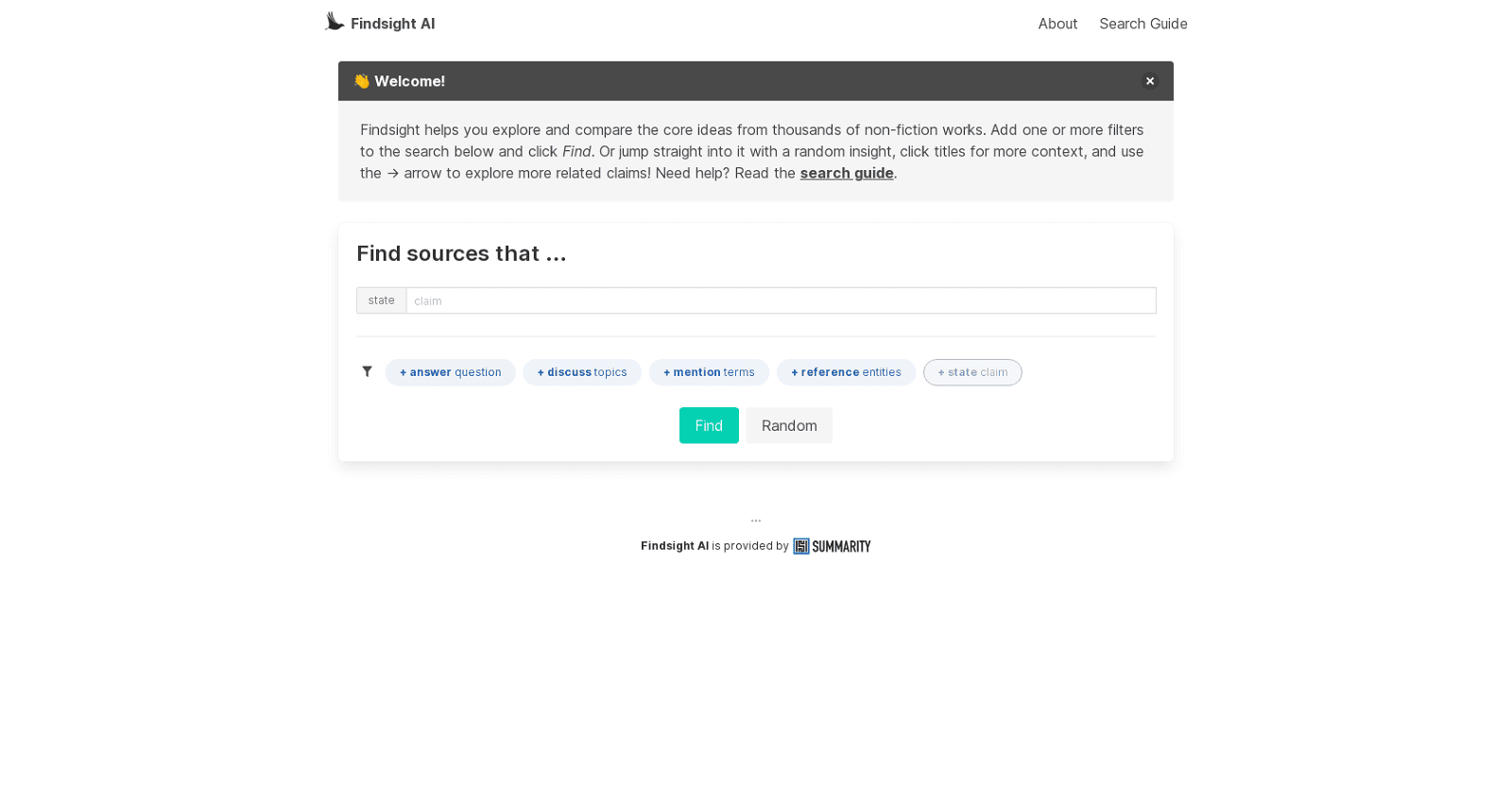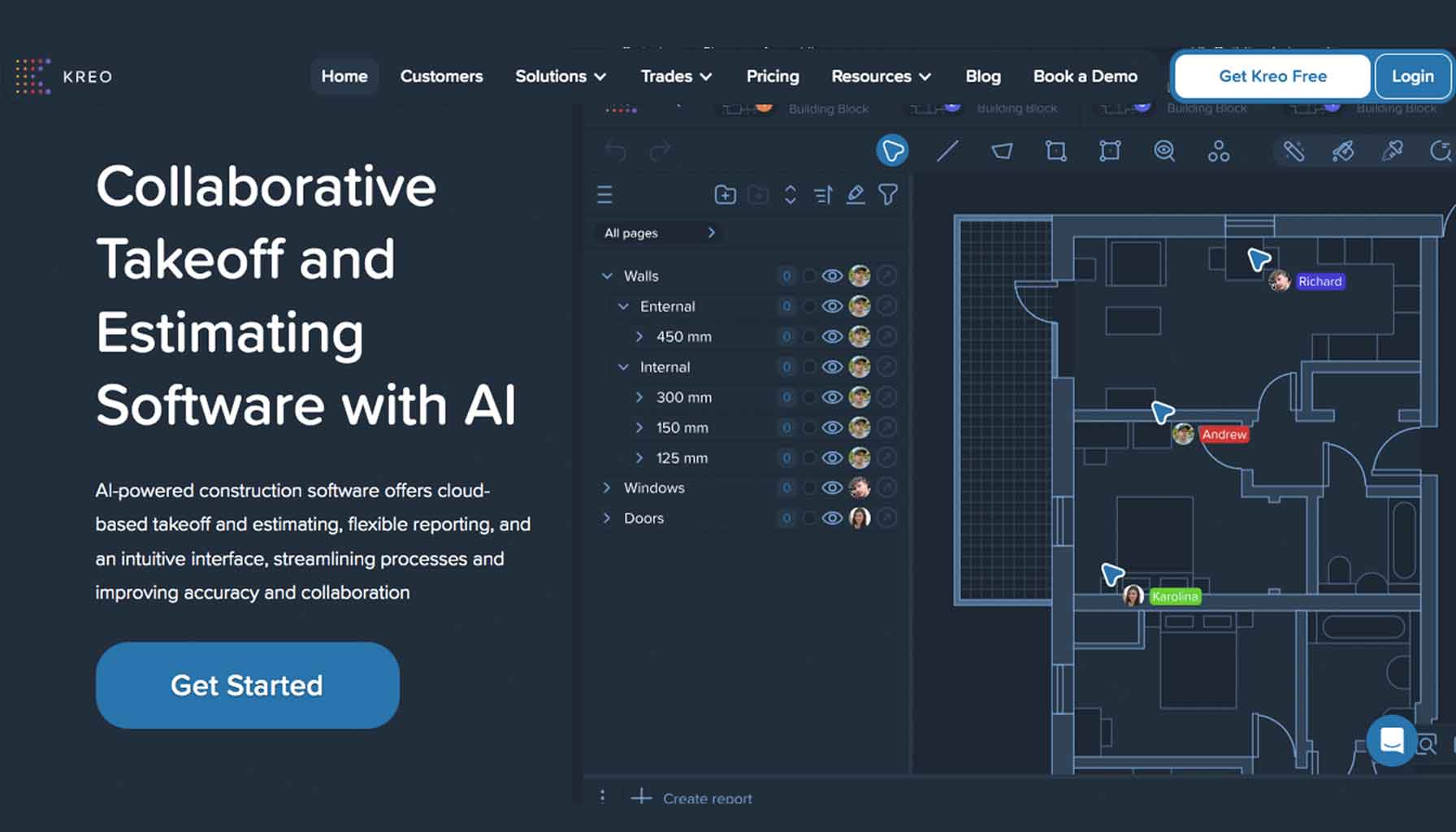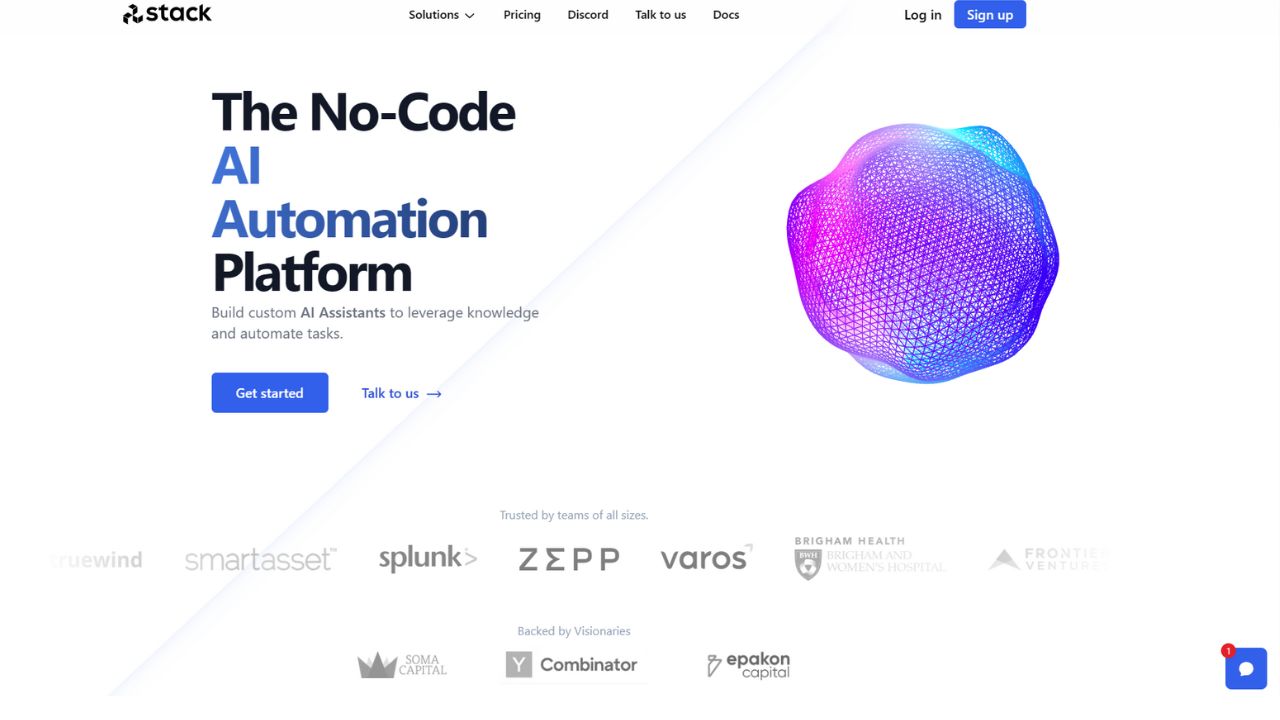FINDSIGHT AI is a dynamic search engine designed to delve into and compare the fundamental concepts across a vast array of non-fiction works. Functioning as a syntopical reading engine, it empowers users to uncover and contrast assertions from numerous origins, navigate through interconnected topics, and curate their unique learning path.
Users can refine their search results through both basic and advanced filters. Basic filters like MENTION and REFERENCES operate akin to traditional search methods, pinpointing sources based on explicit text or suggesting referenced entities to streamline results. Advanced AI-powered filters such as STATE and ANSWER enable users to input custom claims, locate related citations for support, and identify claims addressing specific queries, complete with relevant data.
In essence, FINDSIGHT AI offers a comprehensive platform for exploring and juxtaposing ideas from diverse sources, enriching users’ comprehension and insight across a spectrum of subjects.
More details about Findsight
What are the basic filters in Findsight AI?
The basic filters in Findsight AI include MENTION and REFERENCES. The MENTION filter identifies sources based on literal text input, while the REFERENCES filter suggests named entities or concepts referenced across sources.
How does Findsight AI support personalized learning journeys?
Findsight AI supports personalized learning journeys by allowing users to explore and compare core ideas from thousands of non-fiction works. Users can navigate through related topics, create their personalized learning journey, and refine search results using various filters.
Can I compare claims from multiple sources using Findsight AI?
Yes, Findsight AI enables users to compare claims from multiple sources. Through its syntopical reading engine, users can explore and contrast assertions from various origins, gaining insights into different perspectives on a topic.
Does Findsight AI provide AI-powered filters?
Yes, Findsight AI offers advanced AI-powered filters such as STATE and ANSWER. These filters enable users to input custom claims, find related claims useful for citations, and locate claims that address specific questions with accompanying data.








